Aston Martin has revealed a new styling package for the limited edition V12 Speedster, named after the brand’s highly successful 1950s racer. It’s called the DBR1 and it features a range of styling tweaks designed to mimic the famous competition car.
As neatly illustrated by the brand’s images, the Aston Martin V12 Speedster DBR1 features the same paint finish as its ancestor, sharing an identical shade of Aston Martin Racing Green for the bodywork and Clubsport White accents for the roundels and pinstripes.
In a further nod to the 1950s racer, the Speedster’s interior is finished in a blend of brown leather and green fabric. Mounted in the car’s buttresses beneath a pair of transparent covers are two racing helmets finished in the same shade of green as the body.
Other tweaks include solid silver badges and diamond-turned 21-inch alloy wheels. The cabin also gets carbon fibre trim and brushed stainless steel switchgear, the latter a “tasteful homage” to the classic racer, says Aston Martin.
The V12 Speedster is powered by Aston’s familiar twin-turbocharged 5.2-litre V12. It develops 690bhp and 753Nm of torque in the Speedster, which is sent to the rear wheels via an eight-speed automatic gearbox. Aston Martin says the Speedster DBR1 has enough grunt for a 0-62mph time of 3.4 seconds and a top speed of 198mph.
Aston Martin is currently taking orders for the limited edition supercar. Prices start from £765,000, although the company is encouraging buyers to personalise their cars, which will inflate that figure further. First deliveries are expected to begin in summer.
The original Aston Martin DBR1 tore up the racing calendar in the 1950s, claiming victories at Spa, Goodwood, Le Mans and the Nurburgring. The car’s success was thanks in part to the British brand’s driver choice, with greats such as Sir Stirling Moss and Carrol Shelby both driving the DBR1.
In 1959, the DBR1 took the win at both Le Mans and the 1,000km Nurburgring endurance race, which is a truly impressive feat considering the usual reliability of the period’s racing cars. Of the 54 cars on the starting grid at Le Mans in 1959, just 13 survived the race, with most succumbing to engine or gearbox failures.
Aston Martin only built five DBR1s, with four used by the company’s racing team and one reserved for private use. Unlike its key rival, the Ferrari 250 GT, the DBR1 wasn’t based on a road car. It was developed specifically for the track and, to this day, it remains Aston Martin’s most successful racing car.
By the time the 1958 season rolled around, every car was fitted with a 255bhp 3.0-litre straight six and a David Brown five-speed gearbox, which Aston Martin says allowed the car to reach a top speed “in excess of 150mph.”
Click here to read more about the new Aston Martin Valhalla…
from Sitewide RSS feed https://ift.tt/3nq0YWw
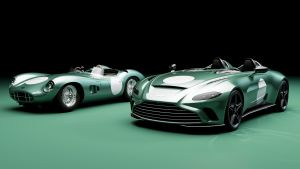
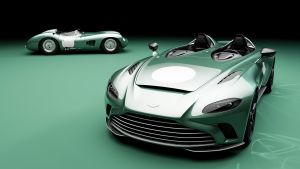
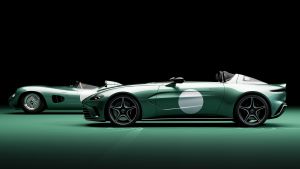
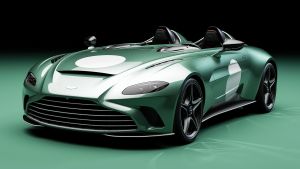
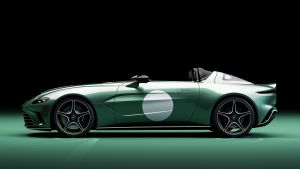
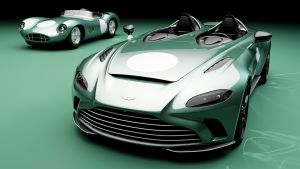
No comments:
Post a Comment